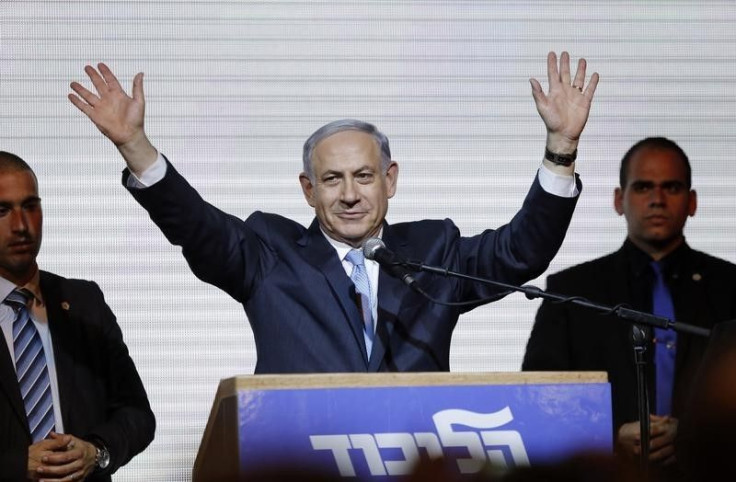US-Israel Tensions: Spying Report Adds To Alarm American Jewish Leaders Feel About Growing Rift

American Jewish leaders are expressing alarm over the very public tensions that have emerged between the U.S. and Israel, especially as the relationship between the two allies faced further strains on Tuesday with the release of a report alleging that the government of Prime Minister Benjamin Netanyahu had spied on closed-door U.S. talks with Iran. The Israeli leader’s recent appearance at the U.S. Congress, where he sought to undermine a possible deal with Iran on its nuclear program, has polarized American Jews, with some rabbis now worrying about the long-term effects of the rift between Netanyahu and President Barack Obama.
Relations between Israel and the U.S. were already strained, particularly ahead of the Jewish state’s high-stakes election last week. The Israeli leader’s controversial decision to address the U.S. Congress without having been invited by the White House, along with his apparent repudiation of the American-backed two-state solution to the Israeli-Palestinian conflict on the eve of the election, provoked uncharacteristic open anger from Washington.
A Wall Street Journal report on Tuesday alleging that Israel spied on U.S. negotiations with Iran in order to lobby Congress to oppose a potential nuclear deal is poised to further complicate the already fraught ties between Washington and the Netanyahu government. “The fact that this has become part of the public tug of war between these two allies is of great concern for us,” said Rabbi Mark Dratch, the executive vice president of the Rabbinical Council of America, the largest organization of Orthodox rabbis in North America.
“Our community is divided on Netanyahu and his recent activities,” said Dratch. “But I think even those who are supportive of his recent statements and his activity appreciate the contribution they make to the increased frictions [with the U.S.].”
Even before the recent tensions, surveys showed sharp divisions between American Jews on various issues relating to Israeli policies. Less than one in four young Jewish Americans viewed Israel’s efforts to bring about peace with Palestinians as sincere, compared with 44 percent of older American Jews, according to a 2013 Pew Research survey. Many Jews were also divided on the feasibility of a future independent Palestinian state, with less than a third of Orthodox Jews believing it was possible for a two-state solution to work, compared to nearly 60 percent of Reform Jews.
"The trend toward fragmentation and weakening the center -- those trends are already in place and they're just going to gallop forward now," Theodore Sasson, a Jewish-studies professor at Middlebury College in Vermont, told the Associated Press. "It's going to make Israel an even more divisive issue in the American Jewish community."
There is now a concern that this growing polarization could undercut the united front American Jews have historically presented in support of the Jewish state.
Netanyahu’s controversial call to his supporters on election day, warning of “droves” of Arabs voting in the election, has in particular touched a nerve among some American Jews, said Rabbi Rick Jacobs, the president of the Union for Reform Judaism, the largest Jewish religious body in the U.S. “Those questions raise a lot of uncomfortable feelings that our core values are being tested and even contradicted,” he said, adding that the issue had drawn a lot of attention from a lot of college-age Jews he’d spoken with at a recent conference.
But Jacobs argues that a lot of this divisiveness and the issues that have been raised around the U.S.-Israeli rift are still far from threatening the deep connections that tie the nations and their people together. “What's clear is that the U.S. and Israel share fundamental, strategic and moral values,” he said. “There's an alignment that's very deep and profound between our countries.”
This underlying emotional commitment to Israel is one thing most American Jews share, with a majority reporting an attachment to the Israeli state, regardless of political or denominational affiliation, according to the Pew survey. As a result, American Jewish leaders of all stripes will be keen to draw on this deeper connection to continue to emphasize the fundamental importance of the alliance despite the political disagreements that have emerged, according to Jacobs.
This will be increasingly important to counter the the perception of eroded U.S. support for Israel, especially given the challenges and threats it is facing on the international stage, including calls for boycotts and censure in international institutions like the International Criminal Court, said Dratch. “We've seen these things heat up in the last couple of years, and Israel has been very fortunate to rely on the U.S. for support and protection.”
© Copyright IBTimes 2025. All rights reserved.






















